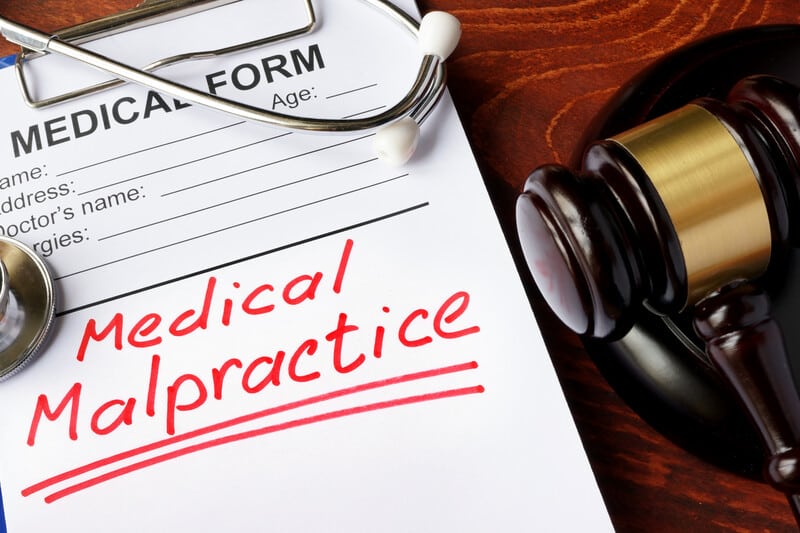Medical malpractice occurs when a hospital, physician or other health care professional fails to maintain a proper standard of care and causes injury to a patient due to negligence. The negligence could be the result of errors in diagnosis, treatment, aftercare, or health management. In medical billing, malpractice refers to unethical and fraudulent billing practices. Errors can occur in every phase of the medical billing process, which can end up being labelled as unethical medical billing practices. An experienced medical billing company will take care to avoid mistakes in claim submission. Their coders and billing staff are well aware that even small mistakes can result in financial losses for the patient and provider, and put healthcare organizations at risk of legal action.
What is Malpractice in Medical Billing?
Physicians are committed to providing quality care and billing correctly for their services. Unfortunately, errors are common in both areas.
Medical billing errors fall under the category of fraud, but most facilities are not making these mistakes consciously. Whether they are the result of human error or fraudulent practices, flawed medical bills cost patients, insurers, and even healthcare providers as they often lead to claim denials that delay payment and affect cash flow. They can also expose providers to criminal and civil liability. Malpractice in medical billing are listed under two categories: fraud and abuse. Medicare and commercial insurance companies consider the following as misrepresentation of clinical information or fraud:
- Knowingly billing for services at a level of complexity higher than actually provided or documented in the medical records
- Knowingly billing for services not furnished, supplies not provided, or both, including falsifying records to show delivery of such items
- Knowingly ordering medically unnecessary items or services for patients
- Billing for appointments that patients fail to keep
The following are examples of abuse:
- Billing for unnecessary medical services
- Charging excessively for services or supplies
- Misusing codes on a claim, such as upcoding or unbundling codes. Upcoding is when a provider assigns an inaccurate billing code to a medical procedure or treatment to increase reimbursement
Malpractice in Medical Billing – Worrying Trends
The following statistics indicate the extent of the problem:
- The Department of Justice recovered over $2.2 billion from False Claims Act Cases in fiscal year 2020
- Medical Billing Advocates of America reported that three out of four bills they review have errors
- A report from the AMA Journal of Ethics notes that:
- Upcoding and fraud costs more than $100 billion annually and can result in unnecessary procedures and prescriptions
- In 2016, the Centers for Medicare and Medicaid Services (CMS) spent $1.1 trillion on health coverage for 145 million Americans, and of this, $95 billion constituted improper payments connected to abuse or fraud
- The Federal Bureau of Investigation (FBI) estimates that fraudulent billing constitutes 3% to 10% of total health spending, contributing to inefficiency, high health care costs, and waste
- Almost 50% of all Medicare claims contain errors (Physicians Practice)
Preventing/Minimizing Risk of Medical Billing and Coding Errors
To prevent malpractice in billing, healthcare providers should be vigilant to avoid the following:
- Inadvertent upcoding and undercoding – upcoding is billing using codes for services that were not received by the patient, while undercoding is not capturing all work performed.
- Not using the discounted negotiated rate when billing a patient
- Billing and providing services that are not covered by the patient’s insurance
- Incorrectly reporting a diagnosis and billing medically unnecessary services
- Duplicate billing or billing for duplicate services
- Unbundling – billing multiple CPT codes for the individual parts of the procedure
- Billing services performed by an improperly supervised or unqualified employee
The often used observation in malpractice litigation is: “If you didn’t document it, it’s the same as if you didn’t do it.” Physicians should maintain accurate and complete medical records and document all services provided. Claims should be supported by proper documentation that proves that the services were actually provided, at the level billed, and were medically necessary. Payers determine that claims have insufficient documentation errors when the medical documentation submitted is inadequate to support payment for the services billed.
Most practitioners rely on medical billing outsourcing companies to manage their revenue cycle. To avoid in advertent billing errors that can end up being construed as medical malpractice, you should make sure to partner with an expert. A reliable, HIPAA compliant medical billing company would have a medical billing and coding team that can help you translate the care you deliver into billable services using the right CPT, ICD-10, and HCPCS codes, while maintaining compliance with ever-evolving industry trends and insurance regulations. Partnering with a reliable medical billing and coding company will allow you to focus on your patients instead of worrying about practice management tasks like coding, billing and claims submission.




